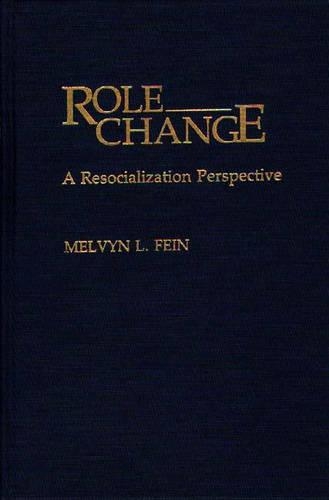
Role Change: A Resocialization Perspective
(Hardback)
Publishing Details
Role Change: A Resocialization Perspective
By (Author) Melvyn L. Fein
Bloomsbury Publishing PLC
Praeger Publishers Inc
20th February 1990
United States
Classifications
General
Non Fiction
302.15
Physical Properties
Hardback
212
Width 156mm, Height 235mm
539g
Description
The book is an introduction to role change theory and applies resocialization concepts to problem solving. Based on the premise that most personal problems are actually role problems best corrected by role change, this volume thoroughly explores the nature of role dysfunction. Focus is placed on how social coercion generates unsatisfying roles, how role conservation mechanism prevents easy change, and how role loss mechanisms - similar to those found in mourning - must be set in motion for change to occur. Sociologists, social workers, and psychologists may find this application of sociological insights to clinical practice to be of particular interest.
Reviews
In this book Fein proposes a theory through which sociologists can offer clinical help to individuals. Role theory suggests that people adopt roles--destructive or constructive--in social groups. If they have adopted a destructive role, clinical sociologists can teach them to abandon it, mourn its loss, and adopt a new role. This procedure is called resocialization. The book integrates diagnostic literature and is written in a clear, straightforward style with a minimum of footnotes or technical terms. Included are two brief case histories of a man and a woman, some useful lists of symptoms, and figures to explain theoretical models. There is a nine-page bibliography, a four-page combined subject-author index, and a description of the author's background. The book seems to be directed both to clinicians and sociologists and to the general public.-Choice
"In this book Fein proposes a theory through which sociologists can offer clinical help to individuals. Role theory suggests that people adopt roles--destructive or constructive--in social groups. If they have adopted a destructive role, clinical sociologists can teach them to abandon it, mourn its loss, and adopt a new role. This procedure is called resocialization. The book integrates diagnostic literature and is written in a clear, straightforward style with a minimum of footnotes or technical terms. Included are two brief case histories of a man and a woman, some useful lists of symptoms, and figures to explain theoretical models. There is a nine-page bibliography, a four-page combined subject-author index, and a description of the author's background. The book seems to be directed both to clinicians and sociologists and to the general public."-Choice
Author Bio
MELVYN L. FEIN is a certified clinical sociologist in private practice. As a human services counselor he pursued advanced studies in sociology because he believed a social perspective was vital to understanding personal problems.
